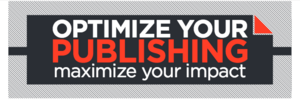Documentation:Open UBC/Learn/How
Discuss With Your Profs
If you're concerned about the cost of textbooks and resources for your courses, consider talking to your professors about Open Educational Resources.
Why talk to professors?
- Professors choose what materials are used in their courses. The UBC Bookstore and Library work to encourage the use of less costly and openly accessible alternatives like OERs and used books, but final say lies with the professor.
Show professors students care: give feedback on course resources
- Share your thoughts on high textbook costs with your professors, show them your appreciation if they use cheap or free alternatives, and tell them how useful you found each resource they assigned. An easy way to do these things is through anonymous midterm or end of term course evaluations, but professors also appreciate in-person conversations and feedback!
Tell your professors about open education
- If you know of a professor you think would be interested in adopting OERs or open teaching practices, direct them to www.open.ubc.ca for help Open 101. Let them know of any existing OERs you think would be useful for their courses, or tell them about |examples of OER adoptions at UBC.
Talk to your elected student representatives
- If you have some more great ideas about how students can encourage professors to use OERs, or if you are interested in talking to your professors but want more support getting started, email your AMS Vice-President, Academic and university affairs at vpacademic@ams.ubc.ca. Visit www.ams.ubc.ca/OER to read about some work the AMS has done.
Publish Your Work
Open Journals
Check out the R2RC Open Publishing Guide for Students.

"Launched as SPARC's student initiative in 2009, the Right to Research Coalition (R2RC) is an international alliance of undergraduate and graduate student organizations, which collectively represent nearly 7 million students in over 100 countries, that work to promote Open Access to research through advocacy and education. R2RC members work to educate the next generation of researchers, administrators, and policy makers about the benefits of Open Access and to advocate for policies at the local, national, and international level that require the results of research to be made freely available online with full reuse rights. The coalition also seeks to make students a full partner in establishing Open Access as the default for scholarly communication. - See more at: http://www.sparc.arl.org/initiatives/r2rc#sthash.B3kHryFi.dpuf"
There are also many opportunities to publish your research in undergraduate journals right here at UBC.UBC Library’s institutional repository, cIRcle, is an open access repository that contains a number of items from undergraduate students. To date, there are 1,700+ undergraduate items in cIRcle/OC from across various faculties, departments, schools and centres, etc. as well as conferences and through community partner initiatives.
Here are some examples of currently active open access journals that are student-led:
- BC Pharmaceutical Sciences Student Journal
- Atlas Undergraduate journal of World History
- NGDI (Neglected Global Diseases Initiative) Student Global HealthJournal
- The Seed: the Undergraduate Journal of Canadian Studies
- hemlock
- The Talon "UBC's Alternative Student Press"
Personal Publishing
- Create a blog that you can use for posting and sharing your work. You can select the work you want to share openly and even use your blog for class contributions where student blogging is a requirement. Get a blog. Learn how to do things on a blog.
- Comments and Privacy: You can control which posts or pages you make public and even choose which users can see what by choosing the options that you want on the blog's privacy settings. Comments allow you to engage with your audience by responding to questions and comments on your posts. It offers the potential of getting feedback on your work and your ideas from a wider range of people than just your classmates and instructors- if that's what you choose.
Contribute What You Create
Turning a Resource into an Open Educational Resource (OER)
OERIPRSupport, CC:BY
Turn your assignment into an open education resource. Here's how:
- Consider applying a Creative Commons license to your work - it makes it more shareable.
- Make it easy to download or (better yet) take apart for remixing. Note: on YouTube, you can license your work with a Creative Commons License and others can remix it in the YouTube video editor.
- Publish it on a blog or wiki or in an open journal like the ones listed in the previous section.
- If you take photos or create images, especially if you do so in the course of your studies, consider uploading them to a platform like flickr that allows you to license them openly. Here is Foter's handy guide/infographic for creating and using CC licensed images.
Learn more from our handy guide: Open Licensing for Students
Find Resources You Can Use
- Finding Images: Learning Commons Student Guide
- Finding Multimedia: Creative Commons Indexes includes meta-indexes of Creative Commons materials, including drawings, maps, music, painting, photography, sound, and video.
- UBC Library: Open Collections: includes archival docs, theses, photographs, etc.